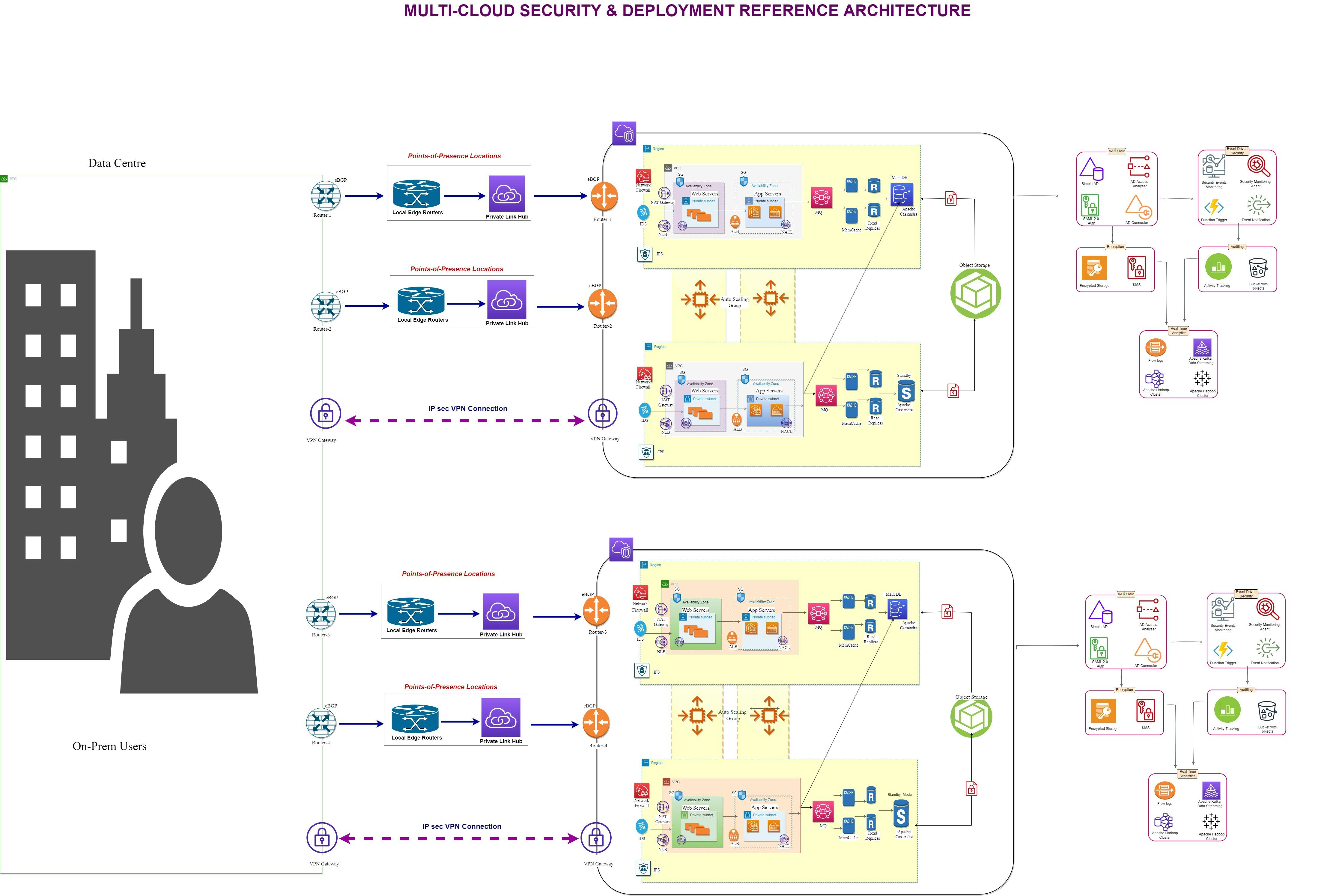Multi-Cloud Security: How To Protect Your Business in a Multi-Cloud Environment
Introduction
Multi-cloud security is a growing concern for companies of all sizes. It is the practice of using multiple cloud providers to create a layered, secure, and redundant security strategy. If there is a single point of failure in your Cloud deployment strategy, then the system will be vulnerable to attacks.
A multi-cloud security strategy provides the flexibility for your organization or business to acquire different levels of security and performance at different times. You can leverage the strengths of two different cloud providers which provides a combination of speed and security. In other words, a multi-cloud security strategy protects your organization by having it's critical data on multiple networks that are not interconnected with one another.
In order to keep your data secure and protected, you must take concerted steps to do the following:
Identify your organization's current cloud assets
Assess your security needs
Assess your current security solutions
What is a multi-cloud environment?
A multi-cloud environment is a type of cloud computing architecture that can accommodate a network of multiple computing resources from different cloud providers in order to take advantage of the best features of each platform.
For example, a business may use a cloud provider for their email, file storage and customer support while a second cloud provider maybe selected to create a redundant data backup, leverage on-premise hardware, software, and infrastructure to synchronize data and reduce storage costs in the event that the first cloud provider is not available.
 Fig 1: Multi-Cloud Security and Deployment Reference Architecture
Fig 1: Multi-Cloud Security and Deployment Reference Architecture
What are the risks of being a multi-cloud user?
The risks of being a multi-cloud user has to do with the potential damage that could occur if the cloud service fails and the organization's data could be lost or corrupted. However, the risks could vary based on the specific use case. These include:
The cloud provider could go out of business
The cloud provider could be hacked
The business or organization could be forced to comply with the cloud provider's terms of service
The cloud provider's physical location could be compromised
It is always important to make sure that you back up your sensitive data and that you have redundancy.
How to protect your business in a multi-cloud environment?
To protect your business in a multi-cloud environment, you need to understand what cloud environments your business is in and how they work. You need to understand how to manage and implement a resilient and redundant security strategy on your business' cloud environment.
In general, one of the best ways to ensure that your business is protected from cyber-attacks is to use multiple security strategies. There are a few ways to protect your business in a multi-cloud environment, namely to:
Stay on top of the latest security threats.
Deploy a firewall, intrusion detection and prevention system (IDS/IPS) that protects your data.
Run and control access to your apps in a private cloud.
Deploy a VPN and demilitarize zone (DMZ) to encrypt and screen the network and web traffic accessing your critical data.
Backup your data in different cloud locations and have in place a disaster recovery plan in case of a breach.
Deploy encryption and key management of access credentials and tokens to your servers, applications and sensitive data storage services.
Use data governance tools to monitor, log and audit the security levels of your data, workloads and network traffic.
When to switch from a self-hosted to a cloud solution?
There is no one answer to this question because it is relative to your business and the needs of your customers. On the other hand, if you are in a market with a lot of competition, you may want to consider switching to a cloud solution for the following reasons:
When you are looking for a larger level of scale and flexibility for your business.
When you have a large number of users and have outgrown your current hosting solution.
When you are getting a lot of web traffic for your business.
When you need to digitally transform your business in terms of computing capacity, more bandwidth, more speed, or a better user experience for your customers.
When you could take advantage of the features that a cloud solution could give you, such as easy integration with social media platforms.
When you're ready to use a more robust and scalable software solution to streamline and automate your business processes.
Why Use a Multi-cloud security strategy for your business?
In today's digital world, it's important to have a multi-cloud strategy. There are many different cloud services that a business may have to use, and having a strategy that is in place to cover multiple clouds will be the best way to secure your business.
A best practice for protecting your business in the cloud is to use a multi-cloud security and deployment strategy. This means that you have multiple cloud platforms and services from multiple providers to store, process and secure your data . It provides redundancy, ease of switching providers, better scalability and performance for your business needs.
Other benefits to using this strategy, includes the:
Opportunity to save on the total cost of business operations associated with purchasing and maintaining additional physical infrastructure and software.
Option to maintain your critical data on multiple cloud storage providers so you can access them remotely from anywhere, anytime.
Less reliance on one cloud provider at any one-time as much as possible for your business needs.
Availability to provide a diverse and flexible approach to security.
Alternative to leverage the use of resources of different providers, such as physical hosting, virtual hosting, and on-premises or cloud-based services.
Reduction of storage, power, and cooling costs, as well as eliminating or minimizing the risk of a single-point-of-failure.
Conclusion
I hope you enjoyed this article about how to protect your business in a multi-cloud environment. As the world has gone digital and has become more reliant on online services, many companies have become dependent on cloud technologies to help scale their businesses.
This recent scenario has made the cloud become ever more ubiquitous, raising the urgency for companies and organizations to focus primarily on multi-cloud security strategies, and the need to adapt quickly and start protecting their businesses using the above recommended best practices.
